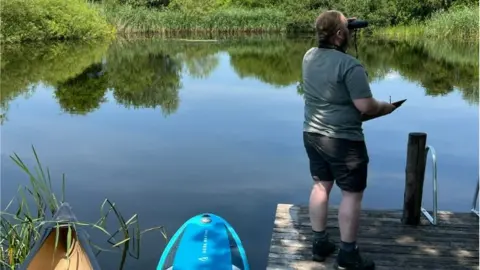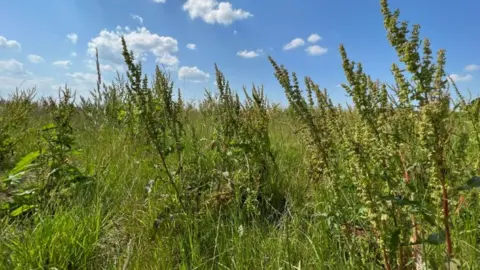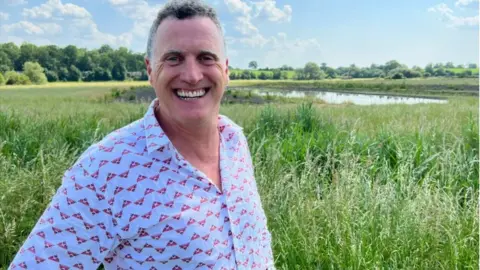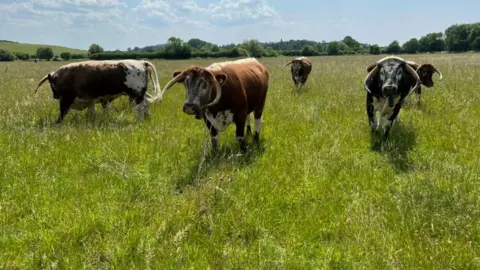Rewilding of Gloucestershire estate leads to biodiversity 'magic'
 BBC
BBCA significant increase in biodiversity after the rewilding of an estate has been described as "magic".
Anselm Guise, the custodian of Elmore Court, wanted to restore the land in Gloucestershire to how it was before intensive farming.
"It is just amazing what happens if you leave it alone, nature knows what it's doing," he said.
University of Gloucestershire students are studying the habitat to see which species have started to flourish again.
Rob Smythson, operations manager, described the the increase in biodiversity as "magic".

"It is really exciting to see rare plants such as the fine-leaved water-dropwort flourish - it has not been seen in the area in more than 70 years," said Mr Smythson.
"We're not doing anything to try and create this, we're just letting nature do it by herself," he added.
Elmore Court was given to the Guise family in the 13th Century by the court of Henry III.
The rewilding began in 2020 with 250 acres, or a quarter of the estate, left to its own devices.
The process helps attract species back that disappeared when the land was intensively farmed.

"We've just stopped interfering," said Mr Anselm.
"You take the chemicals out completely and the insects appear and as soon as you've got insects the birdlife goes up because there's more food," he added.
To track the progress of the rewilding, students have been logging which species are established at present so that any new ones can be monitored over the coming years.
Already, amongst more common British birds such as robins and chiffchaffs, a few rarer birds have been spotted.
"It's really nice to see such a wide assemblage of birds on the estate such as spotted redshanks, redstarts and lapwings," said Connor McGoldrick, a student of applied ecology.

Cattle, such as English Longhorns, have been introduced to graze the rewilded land and are free to roam.
Mr Guise also plans to introduce rare breeds of grazing animals, including Tamworth pigs, red deer and Exmoor ponies.

Follow BBC West on Facebook, Twitter and Instagram. Send your story ideas to: bristol@bbc.co.uk